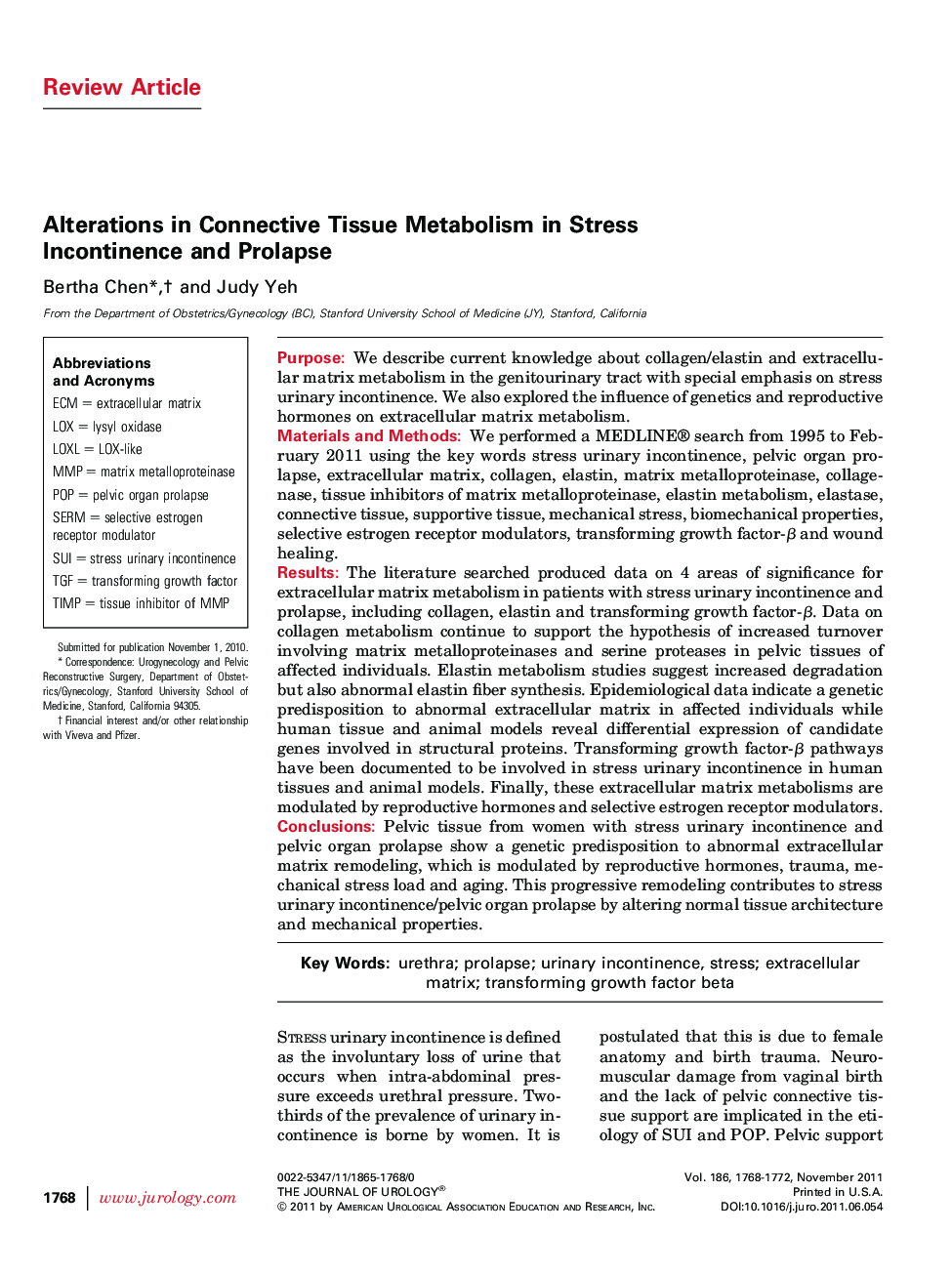| کد مقاله | کد نشریه | سال انتشار | مقاله انگلیسی | نسخه تمام متن |
|---|---|---|---|---|
| 3864343 | 1598942 | 2011 | 5 صفحه PDF | دانلود رایگان |

PurposeWe describe current knowledge about collagen/elastin and extracellular matrix metabolism in the genitourinary tract with special emphasis on stress urinary incontinence. We also explored the influence of genetics and reproductive hormones on extracellular matrix metabolism.Materials and MethodsWe performed a MEDLINE® search from 1995 to February 2011 using the key words stress urinary incontinence, pelvic organ prolapse, extracellular matrix, collagen, elastin, matrix metalloproteinase, collagenase, tissue inhibitors of matrix metalloproteinase, elastin metabolism, elastase, connective tissue, supportive tissue, mechanical stress, biomechanical properties, selective estrogen receptor modulators, transforming growth factor-β and wound healing.ResultsThe literature searched produced data on 4 areas of significance for extracellular matrix metabolism in patients with stress urinary incontinence and prolapse, including collagen, elastin and transforming growth factor-β. Data on collagen metabolism continue to support the hypothesis of increased turnover involving matrix metalloproteinases and serine proteases in pelvic tissues of affected individuals. Elastin metabolism studies suggest increased degradation but also abnormal elastin fiber synthesis. Epidemiological data indicate a genetic predisposition to abnormal extracellular matrix in affected individuals while human tissue and animal models reveal differential expression of candidate genes involved in structural proteins. Transforming growth factor-β pathways have been documented to be involved in stress urinary incontinence in human tissues and animal models. Finally, these extracellular matrix metabolisms are modulated by reproductive hormones and selective estrogen receptor modulators.ConclusionsPelvic tissue from women with stress urinary incontinence and pelvic organ prolapse show a genetic predisposition to abnormal extracellular matrix remodeling, which is modulated by reproductive hormones, trauma, mechanical stress load and aging. This progressive remodeling contributes to stress urinary incontinence/pelvic organ prolapse by altering normal tissue architecture and mechanical properties.
Journal: The Journal of Urology - Volume 186, Issue 5, November 2011, Pages 1768–1772